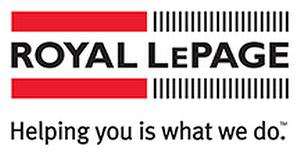For Buyers
Finding the right agent
You want to find the right home, in the right location, at the right price - and you want to do it quickly, with minimum hassle. The best way to do that is to work with a professional realtor who understands your wants and needs, your time frame and your financial boundaries.
Why work with an agent?
- You’ll save time. An agent can pinpoint homes that fit your needs and dismiss those that don’t.
- You benefit from an experienced negotiator. Your agent will manage your offers and counter-offers, ensuring that you get the best possible price for your home.
- You’ll get the right information. Your agent knows the neighbourhood and can give you accurate information on local real estate values, taxes, utility costs, services and amenities.
- You can always count on great advice. Because your agent is familiar with the entire home purchasing process, he or she can advise you of your legal and financial options, and recommend appraisal, home inspection and contracting services.
Choose an agent who understands your needs
Here are a few questions to ask to help you determine if an agent is right for you:
- Will you be representing my interests?
- Do you have access to MLS information?
- Will you provide market evidence to support the price?
- Will you look after closing and possession details?
- Can you be contacted at any time?
Working with an agent
Let your real estate agent do the searching for you. The best buys aren’t in the newspaper ads; most great opportunities are on "hot sheets" that are available every morning to salespeople with access to MLS information.
An agent’s job is to:
- Provide information on the property and the area
- Negotiate a price and terms that are agreeable to both buyer and seller
- Help arrange a source of financing
As a homebuyer, you must work with your agent to find the home that’s right for you. Communication is key - tell your agent what you want, and be specific.
- Offer a detailed description of your property needs and wants. If you will absolutely not consider a house without a hardwood floor, say so. And if air conditioning is a "nice to have" rather than a "must have," communicate that, too.
- Be specific about where you want to live. If you refuse to live outside a certain area, it might take longer to find you a home, but your agent will know not to waste your time with anything not in your chosen neighbourhood.
- Tell your agent what you can afford. He or she can help you get a pre-approved mortgage so you know for sure what your price range will be.
- Communicate your likes and dislikes for each property you see. It will help your agent narrow down the possibilities.
- Commit to one salesperson.
- Respect and perform the terms of the purchase agreement.
- Keep an open mind. Agents know about those charming little areas that you’ve never even heard of. You might find your dream home in a completely unexpected place.
The elements of an offer
Here’s a quick reference to everything you need to know about making an on offer on a property.
1. Price
Depends on the market and the buyers, but generally, the price offered is different from the asking price.
2. Deposit
Shows the buyer’s good faith and will be applied against the purchase price of the home when the sale closes. Your agent can advise you on a suitable amount to offer.
3. Terms
Includes the total price the buyer is offering as well as the financing details. The buyer may be arranging his/her own financing or may ask to assume your existing mortgage if you have an attractive rate.
4. Conditions
These might include "subject to home inspection," "subject to the buyer obtaining financing," or "subject to the sale of the purchaser’s property."
5. Inclusions and exclusions
These may include appliances and certain fixtures or decorative items, such as window coverings or light fixtures.
6. Closing or possession date
Generally, the day the title of the property is transferred to the buyer and funds are received by the seller, unless otherwise specified (except in Manitoba and Quebec).
Choosing a neighbourhood
You’re not just buying a home - you’re buying a location. And even the most perfect house won’t feel right if you’re in the wrong neighbourhood. Educate yourself about the area so you’ll choose wisely - and end up being happy with your decision.
- Are you close to shopping and recreation? Being close to stores, parks, recreational facilities, a post office and dry cleaners will save you time.
- Do people in the area take care of their homes? Explore the neighbourhood, keeping an eye out for signs of neglect (overgrown lawns, houses in need of paint, trash and junked appliances littering yards). A run-down neighbourhood can drive down your property value.
- Are there schools nearby? If you have children, the proximity and quality of schools is key. Some schools will provide data (i.e. average test scores) that can determine quality. Talking to neighbours with children can be helpful, too.
- Is there good access to transportation? Living near public transport and/or major highways can mean an easier commute to work.
- Is it safe? Check with the local police department - they may be able to provide statistics about break-ins or other crimes.
- Will the home increase in value over time? Homes in some neighbourhoods appreciate faster than others. Research the selling prices of homes in over the past decade or so to predict future trends. Your agent may be able to provide helpful data.
- Is it quiet? Listen for traffic noise, barking dogs, airplanes and any other noises that might bother you. Return to the neighbourhood at different times of the day to get an accurate impression.
8 things to look for when you buy
When you fall in love with a home, the things you like about it can blind you to its problems. Next time you go to an open house or tour a property with an agent, keep your eyes open with these top tips:
1. Take a look at general upkeep. Is it clean? Are lawns left uncut? Do walls need paint? If the small stuff hasn’t been taken care of, there’s a good chance that bigger issues have been ignored as well.
2. Test it. Try out lights, faucets, toilets, air conditioning and major appliances.
3. Check for water damage. Look at ceilings and drywall for stains and bulges. Water that works its way in through a leaky roof or a cracked foundation can rot wood, create mildew and destroy possessions.
4. Watch for "spongy" floors. Take note of soft, springy sections, squeaky or uneven areas - these can be a sign that costly floor repairs are needed.
5. Check doors and windows. Make sure they fit snugly in their jambs and operate smoothly. Feel for drafts. Look for flaked paint and loose caulking - if wood isn’t protected from moisture, it will rot.
6. Look at the foundation. If you see deep cracks or loose mortar and bricks, there may be a significant structural problem. Soggy areas near the foundation are also a warning sign.
7. Make sure there’s enough storage space. If you are moving from a home with large closets and a shed, make sure your new house is able to store an equivalent amount of belongings.
8. Measure. Make sure your furniture will fit into your new house.
These tips are for your own first (or second) look at a home. For true peace of mind, you should always hire a certified home inspector before you buy.
Understanding market conditions
The real estate market is always changing, and it helps to understand how market conditions can affect your position as a buyer. Your agent can provide you with info on current conditions and explain their impact on you.
Buyers’ market
The supply of homes on the market exceeds demand.
Characteristics
- High inventory of homes
- Few buyers compared to availability
- Homes on the market longer
- Prices tend to drop
Implications
- More time to look for a home
- More negotiating leverage
Sellers’ market
The number of buyers wanting homes exceeds the supply of homes on the market.
Characteristics
- Smaller inventory of homes
- Many buyers
- Homes sell quickly
- Prices usually increase
Implications
- May have to pay more
- Must make decisions quickly
- Conditional offers may be rejected
Balanced market
The number of homes on the market is equal to the number of buyers.
Characteristics
- Sellers accept reasonable offers
- Homes sell within an acceptable time period
- Prices generally stable
Implications
- More relaxed atmosphere
- Reasonable number of homes to choose from




_crop_bannerImage4_2023324082518.jpg)

